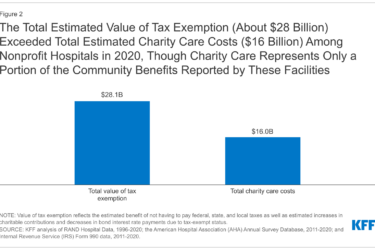The election is over. Obamacare survived.
So what’s the story in your state or community?
Implementation. Or lack thereof.
 Joanne Kenen (@JoanneKenen) is AHCJ’s Health Policy topic leader. If you have questions or suggestions for future resources, please send them to joanne@healthjournalism.org.
Joanne Kenen (@JoanneKenen) is AHCJ’s Health Policy topic leader. If you have questions or suggestions for future resources, please send them to joanne@healthjournalism.org.So here’s an overview of where things stand in D.C. – and what it means for the health beat.
(Soon we will post a short separate item on the new state insurance exchange deadlines. If your state wants to run its own exchange, the deadline is still Nov. 16. They have more time to fill in the details though.)
The Affordable Care Act will not be repealed. Maybe the House will still hold a few symbolic repeal votes, but it’s not going to be repealed. That does not mean that critics of the law won’t try to dismantle parts of it. Some likely targets include the Medicare Independent Payment Advisory Board and some of the industry taxes, particularly the medical device tax. Watch your own legislators to see where they go on this—if you are in a state or district with a medical device industry, watch the Democrats as well as the Republicans (and the medical device businesses themselves). Ask them how they want to offset the funding; if they eliminate one of the taxes that paid for the coverage expansion, where do they want to get that money instead? Adding to the deficit isn’t going to go over as a solution.
The law’s funding is vulnerable. How vulnerable and which parts? Hard to say yet. But for what it’s worth, #DEFUND is the new Twitter rallying cry for opponents of the law (some of whom do not seem to realize that the Republican House can’t act unilaterally … but I digress). There will be ample opportunities for Republicans to try to take a whack at this, not just through the annual budget and appropriations process but through the lame duck session of Congress getting under way this week that will try to find a way of averting, at least temporarily, the fiscal cliff.
Then there’s the next debt ceiling deadline to wrestle over, (that’s how the whole supercommittee/sequestration arose in the first place) and the coming year or so of negotiations over tax and Medicare/Medicaid reform. The funding for the Health Policy law – including the subsidies at the upper end of the sliding income scale, maybe the prevention and public health fund, maybe some of the CMMI money – will all be thrown in that mix.
Republicans also may do what they can to slice into HHS’s implementation money. That’s already a challenge for HHS since it’s going to be doing a lot more of the heavy lifting for running exchanges than originally anticipated – or budgeted – either in partnership with the states, or running the states’ exchanges. Obviously the White House and the Democrats are going to defend the law and its funding, but maybe not every cent. Local angles here, of course, are how do cuts affect patients, providers, public health, exchange planning and implementation.
In addition, watch the budget proposals and processes in your own state – what kind of local implementation costs are arising, and are they being met? (The feds pick up most of the tab but local governments are worried about whatever costs may fall on them. Please send me links to stories you do on this topic or good ones you see so we can track how it’s playing out in different states.)
There are at least four legal challenges. Whether the Supreme Court wants to even think about the health law again – let alone the individual mandate – remains to be seen.
- Oklahoma (and I don’t believe there are any other states joining it at this time – someone please let me know if I’ve missed one) is arguing that the subsidies for people purchasing insurance in the exchanges can only be made available through the state-run exchanges, not the federal-run ones. This argument is being put forth by the CATO Institute and some other libertarians/conservatives (including some in Congress).
- Liberty University is challenging the individual and employee mandates – on different grounds than the case that went to the Supreme Court.
- The “blue slip” case. Under the Constitution, tax laws have to originate in the House or they get rejected with a “blue slip.” This lawsuit argues that the Affordable Care Act originated in the Senate and the individual mandate is a tax so it should be overturned. However, the Supreme Court has rarely thrown out a law under the Origination Clause. The mandate may be a “tax” but the health law itself isn’t really a revenue law, plus the Senate did what it always does when it needs to avoid that blue slip problem. It called up an unrelated House bill, amended it to knock out the House language and replace it with the text of the Senate health bill. Voila, House-origination.
- The contraception cases. These can keep us busy for a while. The Obama administration is still working to finalize the exemptions from the birth control coverage rules for religious or religious-affiliated institutions (some of which have already filed suit because they are skeptical that satisfactory exemption language can be reached.) A number of religious business owners have also filed suit, saying they shouldn’t have to cover contraceptives either.
There are interesting legal arguments here, which may end up eventually in the Supreme Court. And politically it keeps some of the base fired up on both sides. But this is a side issue – that specific policy which is under the umbrella of the Affordable Care Act may or may not be struck or modified by the courts. But it doesn’t stop or nullify or significantly alter the whole health care law. Obamacare would go ahead, no matter what happens to this one specific provision.
This is going to simmer for a while and it’s easy to cover locally – even if no one is suing in your community, you will have people, institutions and businesses with strong opinions on both sides.









